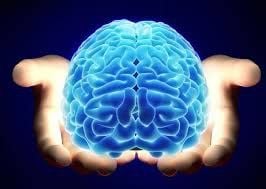This is an automatically translated article.
Learning disabilities make children mentally retarded compared to their peers, leading to children feeling low, sad and disappointed in themselves. So how to recognize early learning disability in children?
1. How to identify a child with a learning disability?
During the preschool years, children acquire knowledge at different rates and in different ways. But if your child has severe difficulty with numbers, letters, or voices, he or she may have a learning disability. Learning disabilities are a type of disorder that originates in the way the brain processes information, making it difficult to grasp certain concepts.
A child with a learning disability may understand a story when it is read to but will struggle to answer questions surrounding the story afterwards. While another child could easily recite the alphabet from A to Z but could not name each letter as they were pointed out. Others may have difficulty putting together puzzles, tying shoelaces, or buttoning sweaters.
Children with learning disabilities may have normal or above-normal intelligence, but they have difficulty expressing their knowledge. Because children with learning disabilities find it difficult to master certain tasks, they often feel frustrated, angry, self-deprecating, and even depressed. Children may only know what they want to achieve - say or write or do - but come not knowing how to do it.
According to Ron Liebman, a child psychiatrist in Wynnewood, Pennsylvania, "Information reaching the ears and eyes is somehow not translated correctly. What the child reacts to is not the answer. correct word".

Khuyết tật học tập là một loại rối loạn bắt nguồn từ cách bộ não xử lý thông tin
2. Warning signs of learning disabilities in children under 5 years old?
Learning disabilities are generally classified into three categories: Speech or language disorders; problems with reading, writing, or math skills; and a variety of other disorders such as problems with coordination, motor skills or memory.
Attention Deficit Disorder is not a learning disability. But children with learning disabilities also often have attention problems.
Here are some warning signs of a learning disability in children aged 5 years and under, including:
Children who are slow to speak Pronunciation problems Difficulty learning new words Difficulty learning to read Difficulty learning words numbers, the alphabet, days of the week or colors and shapes Poor concentration Difficulty following directions Difficulty holding crayons or pens Difficulty buttoning, zipping, and tying strings
3. Identifying children with learning disabilities
Diagnosis of learning disabilities is controversial. Some experts believe the condition is overdiagnosed. The diagnosis of learning disabilities in preschoolers and very young children is particularly controversial because each child's ability to learn is different.
Some criteria for diagnosing a learning disability may not become apparent until the child is older. However, any developmental delay in a child can and should be evaluated from infancy. There are many early intervention approaches that can address developmental delays, and children can benefit greatly from practicing these skills at an early age, which can help them reach their full potential. its ability. If you are concerned about your child's ability to read, write, numbers, or voice, talk about that ability with people familiar with your child, such as your child's teacher.

Bất kỳ sự chậm phát triển nào ở trẻ đều cần được đánh giá ngay từ khi còn sơ sinh
Teachers are often very good at spotting the early warning signs of a learning disability. If your child's teacher is still noticing other problems, don't hesitate to talk about your concerns about your child. You can also get help from professionals.
Sometimes what you're worried about may not be due to a learning disability. However, it is best not to let this condition in children persist. You will help your child if you trust your instincts and talk to your child's teacher or doctor to get an assessment if your child's development seems to differ from that of peers.
The child will need a formal assessment for a learning disability - usually by a child psychologist, neuropsychologist, neurodevelopmental pediatrician or psychiatrist - to know for sure if the child has this problem. The evaluation performed may take up to several hours. Children will be asked to perform different tasks using educational toys and materials.
4. What can be done to help children with learning disabilities?
A learning disability is a condition that is permanent and does not go away. However, you can help your child make up for his or her disability and learn how to solve problems. For example, teachers can present material in a variety of ways, and children can practice skills over and over with support and patience from adults.
As a parent, one of the most important things you can do is support your child and help him have positive learning experiences. The goal is to focus on the child's strengths. If your child has difficulty with the alphabet but loves animals, encourage that interest and help him become an animal expert.
Help children with learning disabilities build self-confidence by encouraging their skills and passions. As Nicki Arnold, psychologist and mother of a son with a learning disability, says: “Plan for activities that you know your child can do and succeed in.

Cha mẹ cần luôn đồng hành và giúp con có những trải nghiệm học tập tích cực
Don't try to be a healer for your child. Your job is to encourage, love, be patient and find professionals with the skills to help your child learn. If the child has been diagnosed, he or she will be eligible for special supportive care services.
Psychological counseling can also be helpful for children. Children with learning disabilities often feel like failures themselves, leading to low self-esteem. They are often frustrated, and that frustration can turn into anger. According to experts, emotional or psychological problems are more important than children learning to calculate.
Parents need to learn how to handle their child's emotional outbursts. Despite the fact that you shouldn't encourage a child who is having a tantrum or crying, this type of emotional release can be beneficial for children with learning disabilities. If you stay close to your child during this time and tell him you love him and you know that things are difficult for him, you show him that he doesn't have to struggle alone - you will always be there to help. child.
Plus you also need to take care of yourself. Being the parent of a child with learning problems can be exhausting and stressful. Many disability organizations also have support groups and counseling for parents. In particular, children in the period from 6 months to 3 years old are very susceptible to respiratory problems, respiratory infections, skin diseases and gastrointestinal infections... Parents need special attention. Pay special attention to the care and provision of adequate nutrition for children. The pediatric department at Vinmec International General Hospital is the address for receiving and examining diseases that infants and young children are susceptible to: viral fever, bacterial fever, otitis media, pneumonia in children ,...

Cha mẹ cần đặc biệt chú ý đến việc chăm sóc và cung cấp đầy đủ dinh dưỡng đủ cho trẻ
With a system of facilities, modern medical equipment, sterile space, minimizing the impact as well as the risk of disease spread, Vinmec will bring satisfaction to customers and receive benefits from customers. Highly appreciated by industry experts with:
Gathering a team of leading doctors and doctors in Pediatrics: Including leading experts with high professional qualifications (professor, associate professor, doctorate, master) , rich experience, worked at big hospitals like Bach Mai, 108.. The doctors are well-trained, professional, have a heart - reach, understand young psychology. In addition to domestic pediatric specialists, the Department of Pediatrics also has the participation of foreign experts (Japan, Singapore, Australia, USA) who are always pioneers in applying the latest and most effective treatment regimens. . Comprehensive services: In the field of Pediatrics, Vinmec provides a series of continuous medical examination and treatment services from Newborn to Pediatric and Vaccine,... according to international standards to help parents take care of their baby's health from birth to childhood. Advanced techniques: Vinmec has successfully deployed many specialized techniques to make the treatment of difficult diseases in pediatrics more effective: neurosurgery - skull, stem cell transplant blood in cancer treatment. Professional care: In addition to understanding children's psychology, Vinmec also pays special attention to the children's play space, helping them to play comfortably and get used to the hospital's environment, cooperate in treatment, improve the efficiency of medical treatment.
Please dial HOTLINE for more information or register for an appointment HERE. Download MyVinmec app to make appointments faster and to manage your bookings easily.
Reference source: babycenter.com












